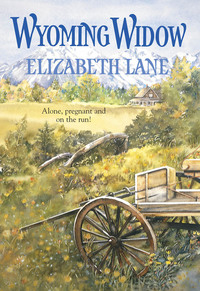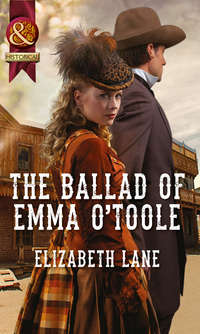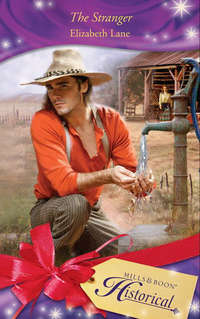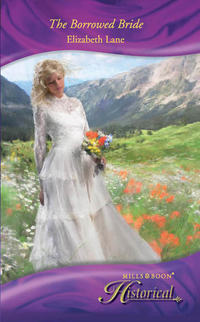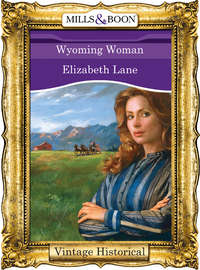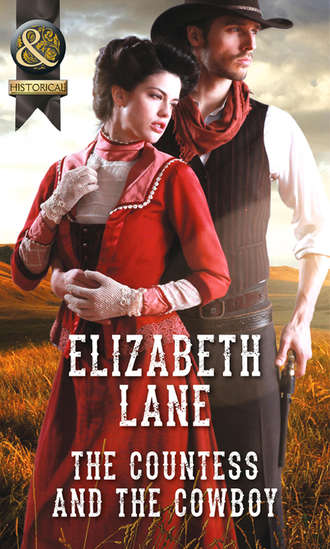
Полная версия
The Countess and the Cowboy

“Nice to see you again, Countess.”
For an instant she froze. After what she’d told Clint Lonigan last night, the first response that came to her mind was, How dare you? But people were watching. The last thing she wanted was to make a scene.
“It’s Mrs. Townsend,” she said in a chilly voice. “And it’s nice to see you too, Mr. Lonigan. Now, if you don’t mind, I have some purchases to pay for.” She turned toward the clerk. “I’ll have two peppermint sticks for the children, please.”
“Coming right up, Countess.”
She frowned. “As I just told the gentleman, it’s Mrs. Townsend. This isn’t England and I’m certainly not royalty.”
“But still a very proper lady.” Clint Lonigan’s voice had taken on a teasing tone.
Ignoring him, Eve signed for her purchases, gave each of the children a peppermint stick and reached for her basket. “I’ll be taking my leave of you now, Mr. Lonigan. Good day.”
AUTHOR NOTE
As a little girl I loved playing cowgirls and cowboys. My cousins and I would cut willows from the canal bank and ride them like horses, whooping and chasing all over the neighbourhood. In the small mountain town where I grew up we couldn’t get a TV signal until I was in high school. But we didn’t need TV. We had our imaginations—and the movies we looked forward to every weekend.
My favourite movies were Westerns, with great stars like John Wayne, Alan Ladd, Roy Rogers, Dale Evans, and wonderful Maureen O’Hara. And I loved Western books, too. By the time I was thirteen I’d read every Zane Grey book on the shelf at the town library. No wonder that when I became a published author I turned to writing Western romance. For me, writing a Western is like going home.
The Countess and the Cowboy is an old-fashioned, rip-roaring Western with a little spice thrown in. Clint is all cowboy and all man, fighting for the rights of small ranchers against the evil cattle baron who burned his ranch and killed his wife and unborn child. Eve is everything Clint isn’t—a gently reared English lady who wants nothing more than to raise her sister’s children in peace. Instead she finds herself in the middle of a range war, torn between her beloved children on the one side and her irresistible cowboy on the other.
I love hearing from my readers. You can contact me through my website elizabethlaneauthor.com
The Countess and the Cowboy
Elizabeth Lane

www.millsandboon.co.uk
ELIZABETH LANE has lived and travelled in many parts of the world, including Europe, Latin America and the Far East, but her heart remains in the American West, where she was born and raised. Her idea of heaven is hiking a mountain trail on a clear autumn day. She also enjoys music, animals and dancing. You can learn more about Elizabeth by visiting her website at elizabethlaneauthor.com
For Walter and Sadie, who wake me up laughing.
Contents
Cover
Introduction
AUTHOR NOTE
Title Page
About the Author
Dedication
Chapter One
Chapter Two
Chapter Three
Chapter Four
Chapter Five
Chapter Six
Chapter Seven
Chapter Eight
Chapter Nine
Chapter Ten
Chapter Eleven
Chapter Twelve
Chapter Thirteen
Chapter Fourteen
Chapter Fifteen
Chapter Sixteen
Epilogue
Extract
Copyright
Chapter One
Northern Wyoming, August 1888
The stagecoach, a canvas-covered mud wagon that had seen better days, rattled over the washboard road. The final leg of the run from Casper to Lodgepole was blessedly short, but the horses were already lathered from the afternoon heat. Dust billowed from under the wheels to settle like fine brown velvet on the driver, the guard and the three passengers inside—two women and a man.
Clint Lonigan sat directly across from the veiled woman. Pretending to doze, he studied her through slitted eyes. He’d already guessed who—and what—she was. Ten days ago, when he’d left Lodgepole to sit with a dying friend, the town had been abuzz with the news that an honest-to-God countess, the widow of an English earl, was coming to live with her sister, Margaret Hanford.
Clint had paid scant attention to the gossip. Mrs. Hanford seemed like a nice enough woman, but her husband, Roderick, was the most arrogant, pretentious piece of cow manure in the whole county. Clint wouldn’t have been impressed to hear that Queen Victoria herself planned on dropping by the Hanford ranch for a damned spot of tea.
But here was the countess in the flesh. And now that he’d seen her, damned if he wasn’t intrigued. The Dowager Countess of Manderfield—Hanford had made sure folks knew her full title. No question that this woman was the real thing. Who but an upper-class foreigner would travel on a sweltering day dressed head to toe in widow’s weeds? She had to be sweating like a mule under that heavy black silk.
If the woman’s costume left any question of her status, the engraved signet ring on her left hand erased all doubt. It was heavy gold with a ruby the size of a black-eyed pea. He couldn’t help but marvel that some plug-ugly hadn’t hacked off her finger to steal it.
A widow’s bonnet, black with a dusty silk veil, concealed her hair and face. Apart from her slender frame, Clint couldn’t tell whether she was young or old, plain or pretty. Even her lace-mitted hands gave no clue. The “Dowager” in her title suggested a woman past middle age. But that didn’t make a bean’s worth of difference, because there was one thing Clint knew for sure.
If the countess was planning to move in with Roderick Hanford, she was already one of the enemy.
* * *
Eve Townsend, Dowager Countess of Manderfield, braced her boots against the floor of the coach, shifting on the seat in an attempt to ease her tortured buttocks. She’d lowered her veil against the dust, but there was nothing to be done for the constant jarring.
Or the heat. Eve felt as if her body was being baked in treacle. She’d worn her mourning clothes to prompt some deference on the journey and discourage any strange men who might otherwise accost her. To that extent the costume had worked. But she was not at all certain that the benefits outweighed the unending discomfort. Traveling in black silk bombazine was like sitting in a Turkish bath.
But enough complaints! This was the American West, and Margaret had warned her to expect some rough conditions. The stormy, sickness-fraught ocean voyage, followed by the jostling train ride from New York to the railhead at Casper, had drained Eve in body and spirit. But this was the last leg of a journey that would soon be over. With Margaret and her children she would have a roof over her head and family around her. She could hardly wait to hold Margaret’s baby, due to be born this very month.
“Will your sister’s family be meeting the stage, Countess?” Plump, middle-aged and chatty, Mrs. Etta Simpkins had already introduced herself. She ran a bakery in Lodgepole and appeared to know the business of everyone in town.
“I certainly hope so,” Eve answered politely. “And you needn’t call me Countess. This is America, after all. Mrs. Townsend will do.”
“Very well.” The woman sounded a trifle disappointed. “But don’t count on Margaret being there when you arrive. When I saw her two weeks ago, she was as big around the waist as a fifty-pound pumpkin. I’d wager she’s had that baby by now. From the look of her, it could even be twins.”
“Twins! Goodness, wouldn’t that be wonderful? That’s why I’ve come, you know, to help Margaret with the children.”
It was enough truth for now, Eve reasoned. There was no need to spread the word that, upon her husband’s death, her grown stepson, Albert, had burned his father’s updated will—which would have left her generously provided for—and booted her off the Manderfield estate with little more than her title and her wedding ring. If not for her sister’s invitation, she could be languishing in the poorhouse.
Eve brushed a blowfly off her skirt, its movement drawing her eye to the man who sat on the opposite bench, his knees almost touching hers. At the moment, he appeared to be sleeping. But the glimmer beneath his lowered eyelids told her he was fully alert, like a dozing panther.
He’d muttered an introduction before taking his seat. Lonigan—that was the surname, she remembered. Irish, of course, having the name and the look of that wretched race, though his speech sounded American. She’d acknowledged him with an icy nod. He’d seemed not to care or even to notice her disdain. Perversely, his utter indifference piqued her interest.
She studied him through her veil—a lanky frame, long denim-covered legs, dusty Mexican-style riding boots, a faded shirt and a well-worn leather vest. His sun-burnished hands were callused—a workingman’s hands. His proud bearing suggested he might be a landholder. But he didn’t appear to be wealthy like Margaret’s husband, Roderick, who, according to her letters, owned more than twenty thousand head of cattle and a house as big as an English manor.
Eve’s eyes lingered on the man’s face. He had features like chiseled granite, framed by unruly chestnut hair that curled over the tops of his ears. The scar that slashed across his cleft chin lent him a subtle aura of danger. He struck her as the sort of man no proper lady should have anything to do with.
Still, she caught herself trying to imagine the color of his mostly closed eyes.
A sudden pistol shot whanged from behind the coach. The bullet pierced the canvas cover, splintering the wooden framework overhead. Eve jerked upright, paralyzed by disbelief. Why would anybody be shooting at them?
“Damn it, get down!” Lonigan was out of his seat in an instant, shoving both women onto the floor and flattening himself on top of them. Eve struggled under his weight, eating dust as the coach lurched and picked up speed. He refused to move, his solid chest pressing down on her back. Beneath his leather vest, she could feel the distinct outline of a small, holstered pistol.
The coach swayed crazily as it thundered along the rutted road. Bullets sang overhead like angry wasps. Mrs. Simpkins was shrieking in terror.
A hump in the road launched the coach into an instant’s flight, then dropped it with a sickening crunch. The vehicle careened to one side, shuddered and came to rest on one broken wheel. Eve bit back a whimper. Clearly, they’d been run down by highwaymen and their lives were in grave danger. But her late father, who’d served his country during the great Indian mutiny, had schooled her to hide her fear.
“Everybody outside!” The male voice sounded young and nervous. “Do as you’re told and nobody gets hurt.”
Lonigan muttered a string of curses. Eve gulped dusty air as his rock-hard weight eased off her. “Give me your ring!” he growled in her ear.
“And why, pray tell, should I do that?”
“They’ll take it if they see it. Might even cut your finger off to get at it if you don’t cooperate. Give me the damned ring!” Without waiting for a reply, he seized Eve’s hand and yanked the ring off her finger. It vanished into a vest pocket as he rose to his knees and unlatched the door of the coach.
“We’re coming out,” he shouted. “But mind your manners. There are ladies in here.”
Eve scrambled onto the seat as he opened the door and stepped out. Mrs. Simpkins appeared to have fainted. Eve found her smelling salts in her reticule and waved the vial under the woman’s nose. She flinched, snorted and opened her eyes. “What’s happened?” she gasped.
“We’re being robbed. They want us to get out.”
“Oh, dear!” She looked as if she were going to faint again.
“Come on—and keep still. The less we say the better.” Eve helped the woman rise. Passing her ahead to Lonigan, Eve took a breath to collect herself and then climbed out of the coach and into the sunbaked air. Her legs felt as unsteady as a newborn lamb’s, but she straightened her spine to hide her nerves and anxiety.
Through the haze of settling dust she surveyed the chaos—the lathered horses and the coach sagging onto its shattered wheel. The grizzled driver’s hands were in the air. The guard clutched his bleeding arm but didn’t appear badly hurt. Eve saw no sign of the double-barreled shotgun he’d carried.
There were just two robbers, their hats pulled low and their faces masked with bandannas. Slim and erect on their mounts, they could’ve been schoolboys. But there was nothing childish about their weapons—heavy pistols, cocked and aimed.
“Is everybody out?” Eve recognized the nervous voice of the robber who’d ordered them from the coach.
“We are.” Lonigan faced him boldly. Eve remembered the gun under his vest. Did he plan to use it? “As you see, boys, it’s just me and these two good widow ladies. None of us has anything worth stealing. So pack your pistols and go home before somebody else gets hurt.” His eyes flickered toward the wounded guard. “Damned lucky you didn’t kill that man. You could end up swinging by your fool necks.”
Eve glanced at him from beneath her veil. Something didn’t seem right, and suddenly she knew what it was. Lonigan didn’t seem the least bit afraid. He was lecturing the robbers like a stern uncle.
He knew them!
* * *
Lonigan swore silently. He’d told the Potter brothers to lie low and keep things quiet while he was away. What in Sam Hill were they doing holding up the stage, especially in broad daylight? The bandannas couldn’t hide their builds and it sounded as if they hadn’t even tried to disguise their voices. Didn’t the young fools understand what could happen if they were recognized?
When he got them alone, he’d give them the tongue-lashing of their lives. Meanwhile, he needed to get them out of this mess before things went from bad to worse.
“It’s the strongbox we come for,” Newt, the older of the brothers, said. “Throw it down, and we’ll go.”
The driver shook his shaggy head. “Man, there’s no strongbox on this stage.”
“That ain’t what we was told.” This time it was Gideon who spoke. “A box of cash from the Cattlemen’s Association in Cheyenne. They was sendin’ it to hire gunfighters.”
Lonigan suppressed a groan. He’d been in Cheyenne with his ears open, but he’d heard nothing about any cash, nor had he seen any signs of a strongbox when they’d loaded the coach. It had to be a mistake or, more likely, a trap.
A bead of sweat trickled down the side of his face. The Potter boys had become part of his secret operation two years ago, after their father was framed and hanged for cattle rustling. They’d long since proved their courage, but they were young and reckless. If someone had planted the rumor about the cash to draw them out, the sheriff’s men could already be on their way to arrest them.
He had to get the boys away from here. But how could he do it without showing his own hand?
The driver shrugged. “There’s no cash on this stage. Look for yourself.”
Newt nodded toward his younger brother. “Go on. I’ll keep ’em covered.”
Gideon dismounted and checked the front boot, where the strongbox was usually kept. He shook his head and moved on to search the rest of the stage. Clint glanced at the two women beside him. Mrs. Simpkins seemed ready to collapse. The countess stood ramrod straight, supporting the terrified woman with one arm.
Looking over, Clint noticed that Newt was staring at the countess, as well. He was the volatile one of the brothers, with a nervous tic and a jumpy trigger finger. Anything could set him off. “I don’t like it when I can’t see folks’ faces,” he snapped. “Lift that veil, lady.”
Hesitating, she glanced toward Clint.
“Do it,” he growled.
Her free hand caught the veil’s lace edge and swept it back.
Clint had resolved not to gape at the woman, but he couldn’t help himself. He’d expected a grim widow approaching middle age. But the countess couldn’t have been much past thirty. Raven hair framed a porcelain face with classic features. Her full, almost sensual mouth was accented by a tiny mole at one corner. When she glanced toward him, the eyes that met his were a startling shade of blue, framed by dark-winged brows and lush black lashes.
Clint bit back a curse. The countess was, without doubt, the most stunning woman he’d ever seen.
Not that her beauty mattered to him either way. He wasn’t looking for a woman, especially not one going to live in the enemy camp. Everything she saw and heard today would go straight back to her brother-in-law, Roderick Hanford. And Hanford was no fool. If he managed to piece things together and realized that Clint recognized the men responsible for nearly shooting up the man’s sister-in-law, they’d all be in trouble.
“The strongbox ain’t here,” Gideon announced. “I looked everyplace, even underneath.”
“Damnation!” Newt spat a stream of tobacco into the dust.
“I’d say you’ve been fooled, boys.” Clint spoke calmly. “If you know what’s good for you, you’ll swing those ponies around and head for the tall timber.”
Gideon was back in the saddle. Half turning his horse, he glanced at his brother. “Let’s go,” he said.
But Newt was building to an explosion. Clint knew the signs—the twitching eyes, the shaking hands. The boy could be unpredictable when he was out of control, and the law could be here any minute.
Newt’s pistol quivered in his hand. “We come this far. We ain’t leavin’ empty-handed.”
Clint struggled to curb his anxiety. There was only one thing left to do, and the countess wasn’t going to like it. He fished in his pocket and came up with the ruby ring. “This will make it worth your trouble. Take it and get the hell out of here.”
The countess gasped as Newt leaned down and snatched the ring. Clint exhaled as the two would-be stage robbers wheeled their mounts, spurred them to a gallop and thundered over the crest of a nearby hill. They were safe for now. But those young hooligans had put his whole operation at risk. When he saw them again, he was going to give them Jesse, and he wouldn’t let up till he had some solid answers about who had told them such a damn fool story, and why they’d been thick enough to believe it.
Right now he had other problems—not the least of them a riled woman who wanted a piece of his hide.
“How could you?” The countess’s eyes blazed blue fire. She looked as if she wanted to fly at him and claw his face to bloody ribbons. “First you take my ring so it won’t get stolen! Then you give it to the thieves! That ring was in my late husband’s family for generations. It was all I had left of him! Now it’s gone!”
As she glared up at him, Clint saw tears brimming in her azure eyes. He forced himself to turn aside. Pity for Hanford’s sister-in-law, who probably had more money than all the county’s poor ranch families combined, was an emotion he could ill afford.
“Look at me!” She caught his sleeve. “Don’t you have anything to say for yourself?”
Clint hardened his gaze. “I did what I had to, lady. Would you rather have been shot, or maybe raped? Would you rather they’d hurt someone else?”
“Of course not. But if you think I’m going to let those robbers ride off with my most precious possession you’re sorely mistaken. I’m holding you responsible, Mr. Lonigan. And if I don’t get that ring back, my brother-in-law, Mr. Hanford, has the power to make you pay!”
The mention of Roderick Hanford triggered a surge of bitter fury. Clint fought it back. “Fine,” he snapped, “but that will have to wait. For now, stop caterwauling and make yourself useful. You can look after Mrs. Simpkins while I check the guard and help the driver replace that broken wheel.”
Without waiting for her response, he turned his back on her and strode toward the front of the stage.
* * *
Seething, Eve watched him walk away. It wasn’t so much his argument that had offended her—on the contrary, it made sense that something had been needed to mollify the robbers. But his manner was insufferable. She was the widow of a nobleman, but he’d spoken to her as if she were a backward child. In England, no commoner would have dared address her with such insolence.
True, she was no longer in England. Everyone was a commoner here. But some were more common than others, and rudeness was rudeness. Mr. Lonigan was clearly no gentleman. For all she knew, he could be in league with the pair who’d held up the coach. He’d certainly appeared to know them. Perhaps he’d planned all along to give them her ring.
The ring was a devastating loss. But for the time being, there was nothing she could do to recover it, so Eve tried not to think about it. Instead, she guided Mrs. Simpkins to a nearby flat boulder, then hurried back to the stage for parasols, her reticule and a canteen of water. The sun was blistering, and there was no shade to be found.
“Are you all right?” Eve raised the woman’s parasol and pressed the canteen to her lips.
“I will be.” Mrs. Simpkins took several dainty swallows and wiped her mouth with the back of her hand. “My stars, what a fright! I’m so sorry about your ring, my dear.”
The familiar term was oddly comforting, even coming from a stranger. Eve let it pass. “Did you recognize those two robbers, Mrs. Simpkins?” she asked.
The woman shook her graying head. “One of the voices might have sounded familiar, but I can’t be certain. Given the state I was in, I wouldn’t have recognized my own children.”
“And do you know that wretched Mr. Lonigan?” Eve glanced toward the stage, where Lonigan was wrapping the guard’s wounded arm with a red bandanna.
“I know him, but not well. He’s got a small ranch north of Lodgepole. Paid cash for the land, I hear tell. He was widowed two years ago, but I never did meet his wife. They kept to themselves and she didn’t come into town. Not even for church. I’ve heard rumors of a scandalous past, but nothing I can tell you for sure. Mercy, but it’s hot!”
“Here, this should help.” Eve reached into her reticule, withdrew a black lace fan and snapped it open. Mrs. Simpkins accepted it with a grateful sigh.
“My, but this is lovely!” she exclaimed.
“Then it’s yours. Keep it as a remembrance.” Eve would have no need for it soon. She had long since resolved to set her mourning aside at the journey’s end. She’d agreed to marry Arthur Townsend, Sixth Earl of Manderfield, after he’d offered to pay off her father’s debts. Arthur had been a kindly man, and he’d treated her like a queen; but he’d been more than twice her age. She’d liked and respected him, but they certainly had not been in love. Three years prior to his death a stroke had left him an invalid. Eve had cared for him faithfully until the end—when his son, Albert, had stepped in, taken over the estate and cast her out like a common strumpet. But never mind. The past was behind her now. She was ready to make a new start.
And in such a wild place! Her gaze swept upward to the mountains, so tall and rugged that they seemed to pierce the sky. Even under the August sun, their rocky peaks bore glistening patches of snow. Below the timberline, forests of dark green pine carpeted the slopes, giving way to the green-gold of aspens and the grassy hills that fed thousands of white-faced Hereford cattle, the wealth of this untamed land.


